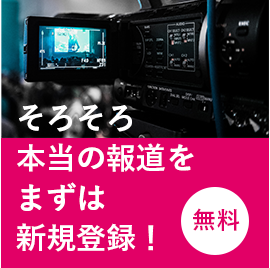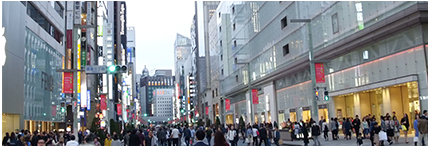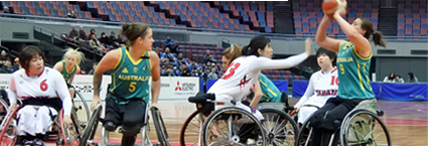REMEMBERING HIDEKI IRABU FINAL-PART III
The name Irabu came from Hideki’s mother. It was her surname, and Hideki’s stepfather had been a common-law husband. Hideki had been aware that he had a biological father somewhere in America, but he viewed his stepfather, Ichiro, who took the name Irabu, as his real father, Ichiro had raised Hideki as his own and encouraged his stepson’s love for baseball. He had set up a routine of rigorous exercise to strengthen his body and his pitching arm—including a drill where he tied a rubber tube to a pole and tugged on it using his throwing motion to strengthen his arm and back muscles. Throughout his school years Hideki would awake ever morning at 5:30 without fail to exercise and run. “I was just stunned by his ability to keep up with a lot of hard work,” said his stepfather to a New York Times reporter, “Hideki would tenaciously hang onto things that a normal kid would have long given up. And that made me thing that he might grow up to be an extraordinary man.”
Hideki grew up ‘haafu’, like his agent Don Nomura and turn on anyone who made a rude remark about him being an ‘ainoko’, half breed, hurling some insult like 'bakayaro!' in return and sometimes the fight would be on. However, what bothered him more than being singled out for being “different,” he said, was growing up in poverty and never having enough to eat. He said that one of the good things about being recruited to play baseball at a big name baseball high school was being able to live in the team dormitory and eating to his heart’s content in the team cafeteria three times a day.
Meeting his biological father, a retired civil servant living in Alaska, had been another good thing. Knowing that his biological grandfather had the same birthday as Hideki and that he had also played professional baseball, gave him a certain sense of having had a destiny to fulfill, although he was frustrated at his inability to communicate with the man whose DNA he shared without the constant presence of an interpreter and as a result the relationship had withered on the vine, so to speak.
Upon leaving the big leagues, Irabu returned to Japan to play with the Hanshin Tigers where he experienced some success. He won 13 games in 2003 and helped the Tigers win a Central League pennant. He played another, less successful, year, then retired to Southern California with his wife and two daughters to run a moderately successful restaurant chain with the help of a Torrance based Japanese-American businessman.
“There were a lot of guys around Hideki,” said a friend, “Not all of them had his best interests at heart. But his business partner did and Hideki was pretty careful with his money. He didn’t have the financial problems a lot of retired ball players wound up with.”
Irabu grew bored with business. For a time he talked of getting into Hollywood movies, as an action actor, but nothing ever materialized in that area. Thus, in 2009, he tried a comeback in the independent Golden Baseball League, posting a contract with the Long Beach Armada posting a mark of 5-3 with a 3.58 ERA. In August that year, had had been introduced as a member of the Kochi Fighting Dogs, a team in one of Japan’s new independent leagues, but injuries kept him on the sidelines. He subsequently coached in a youth league, but, according to one acquaintance, it bothered him to see young players working so hard in practice. “It’s pointless,” he was quoted as saying, “Either you have natural born talent like I do or you don’t. And no amount of practice will give it to you.”
Trouble continued to do him. Hideki liked to drink. He liked to call up fiends and hit the night clubs and spend his evenings in the company of bar hostesses. He traveled back and forth between Los Angeles and Tokyo and Osaka, and had drinking pals in all of those cities, as well as Honolulu. Whenever he was in town he would be on the phone to whoever was available setting up another night of wine, women and song. But he tended to overdo it. There had been an incident at a ‘girls bar’ in Osaka in 2009 where he had reportedly consumed 20 mugs of beer and then grew obstreperous when the proprietor refused to accept his credit card. “Do know who I am?” he was quoted as saying, “The world famous Irabu? I could easily buy up a place like this.” Police arrived and arrested him for assault.
During his final year of life, Hideki had reportedly fallen into a depression. He complained of being lonely, of having fewer friends than before. He told one visitor, “I have no idea what to do with myself when I get up in the morning.” The Nikkan Sports reported that he called his former manager on the Tigers Senichi Hoshino in the middle of the night Japan time from Los Angeles, and broke down in tears. “I want to come back to Japan,” he said and begged Hoshino for help in finding a job as a coach, But a job was not forthcoming. In 2011, he gave an interview to a Japanese magazine in which he said, “I want to go back to Japan. I can’t speak English. I don’t belong here.” But his wife wanted to stay in LA. She wanted their two children to grow up “international.” Irabu was the only one in his family who could not speak English well.
Hideki’s and his wife Kyonsu had wed in 1998 in what could be described as an arranged marriage. Kyonsu had come from Chiba, home of the Chiba Lotte Marines. She was an ethnic North Korean with a Japanese passport. Her father was a wealthy pachinko operator in Chiba who enjoyed a strong relationship with the local bank. Chiba Bank,where Kyosu had been employed as a teller. The bank also had a strong relationship with Lotte. According to sources, the marriage between Irabu and Kyonsu had been 'arranged' by Lotte and Chiba Bank, while Hideki was still awaiting a decision on his struggle with Lotte and San Diego. Kyonsu was described as “serious” and a “good wife,” who always took care to see that her husband ate the right foods, like genmai or brown rice. But after the children came, she devoted more and more of her attention to being a good mother, and spending more time with a group of Koreans and Korean-Japanese living in the LA area.
Said a friend of the family,“She really took good care of him. She let him do anything he wanted. If he wanted to go out with his friends, she would just say,“fine, and what time are you coming back. After he retired from baseball she didn’t bother him about getting a job like some wives would. And she came from a very wealthy family. She didn’t need Hideki’s money. You didn’t see her all dressed up and out there trying to impress the other wives. She wouldn’t leave him without a good reason…”
In March 2011, Irabu was arrested on a DUI in Los Angeles, and was sentenced to court counseling. His wife had reportedly had grown weary of dealing with her husband’s erratic behavior and had issues with his drinking. And so in the spring of 2011, she packed and left, taking with her the two children.
Hideki quit drinking and made an attempt to get his life back in order. But neighbors reported seeing him walking around the grounds of his Rancho Palos Verdes, California home, seemingly in a daze. Some people said he was experiencing a mid-life crisis. Others said it was it was more than that.
Irabu’s finally interview, with a Japanese journalist, took place in mid-July and was published a couple of weeks later in the popular magazine Shukan Shincho. He had lost 20 kilograms, a result, it appeared, of having quit drinking. But he was quoted in the Shukan Shincho as telling the interviewer he was sick, although neither he nor the magazine elaborated on the nature of that illness. The Shicho article mentioned that divorce was imminent and that Irabu complained of being lonely.
Irabu was a complex man. He could be fun to be with. He liked karaoke. He could laugh at his own short temper and his other eccentricities (For him, a trip to the dentist as sheer terror. He had to be put under anesthesia). And he was unfailingly generous. Said a longtime acquaintance, “He treated his employees and friends to dinner often and he made sure the had a good time. ‘Have you had enough to eat?’ he would ask. ‘How about trying this/’ He would sit there and wait until everyone was satisfied. When Hideo Nomo took his friends out, by contrast, Nomo would finish eating ahead of everyone else and then it was time to go, whether anyone else was ready to leave or not. Hideki was a really, really nice guy that way.”
Irabu had a tattoo of a dragon on his back and shoulder which he believed gave him power. It represented a dragon god, he had created, one which he called “Ryujin,” and one whom he prayed to and paid tribute to with an assortment of Dragon statues, statuettes and figurines that he kept displayed in his home. If someone he disliked met with some misfortune, Irabu would tell friends that that misfortune had been the doing of “Ryujin.” But, sadly, he had demons that neither he nor his dragon god could conquer. On the morning of July 27, 2011, an acquaintance stopped by to check in on Hideki and found a gruesome scene: Hideki Irabu hanging from a rope in his garage. He had been dead for three days. The odor, the acquaintance was reported as saying, was overwhelming.
His agent and longtime friend, Don Nomura could not believe Irabu was gone. “I’d talked to him a month earlier in Los Angeles and we made plans to meet that weekend, the weekend he died,for dinner. We’d talked about the good old days and how he had changed baseball. He seemed upbeat to me. He’d quit drinking and he looked healthy. Frankly, I couldn’t see any reason for him doing what he did. He said his wife had agreed to get back together and give it another go after the end of summer vacation. He seemed to be enjoying life. He had no money problems. He had a nice house. He had reapplied for his green card. I was going to hook him up with an independent league as a coach and I was also going to arrange some speaking engagements for him. He said, ‘Do you think people will really be interested in what I have to say?’ Hell yes, I said. He had those Yankee experiences to talk about.The Lotte-San Diego thing. He seemed eager to do it. So everything just puzzled me. I have to believe that what he did was a spur of the moment thing. An accident maybe. I believe he was drinking alone and one thing led to another and that he didn’t know what he was doing. It didn’t make any sense, otherwise. Hideki was a very precise, orderly person, who planned his moves. If he was really going to kill himself, he would have cleaned his house and then left a note. But he didn’t do that.”
His old friend Jean Afterman had a different interpretation. “Life was easiest for Hideki when he was throwing a baseball,” she said, speaking on the phone recently from her office high atop Yankee Stadium, “On the mound, he was in control. The hard thing for him was the rest.Being mixed race, growing up not knowing his father, working under autocratic NPB rules, battling Lotte and San Diego execs, fighting the urge to drink and smoke. I think that maybe the combination of not being able to play baseball anymore and being alone was too much for him. He was a fighter but that was too much for him to take on. ”
Hideki Irabu left a legacy worth remembering. On his best days, he was as good as any pitcher who ever lived. He was proud of the fact that in 1998, for half a season, he was the best pitcher on the best team there ever was. In New York, he became the first MLB to use magnets. Before each game, he had 50 tiny round magnets attached to his back, shoulders and head. Later he added a magnetic wrist bracelet, which today has become a trend among MLB players.
But it was his efforts on behalf of players’ rights that are more important. Because of his willingness to fight the trade from Lotte to the Padres, no player will ever have to go through what he did. That doesn’t happen anymore. As Afterman put it, “he was buoyed by the idea that history was different because of him.”
“I was honored to work with him,” said Nomura, “It was said to see him go. I still can’t believe he is gone. He did more than what people think he did. He was a target of the press and I know that hurt him a lot. I just hope that people come to appreciate what a contribution he made, that history is different because of him. The media has got to give him some credit. They made money by writing about him while he was playing. Criticizing him usually. I think they should contribute something to his legacy in return. I think they should change the name of the Posting System to the Irabu System, in his honor.”
END
EDITED MATERIAL
Michiyo indicated Irabu did not get along with his step father. She suspects that his step father used to beat him and that his mother was not much better - but did not delve into detail.
Michiyo has met Hideki's father. Irabu introduced them at an airport in the US. Apparently he is a very regular-looking guy -- thin --- and lives in Alaska. Unlike Irabu's 'step-father' (Michiyo claims Ichiro is not married to his mother and 'Irabu' is his mother's surname... plus, she indicates Ichiro is Korean and has never really worked except for the okonomiyaki restaurant he opened with his son's money), his real father never came asking for money or anything like that.
If anything troubled Irabu, it might have been
When Irabu started with the Yankees, one night he apparently totally trashed his hotel room in Florida - probably drink was involved. And, Kyonsu got hit somehow too.
A friend described Irabu’s fear of the dentist. It was sheer terror. Not only did the friend have to accompany him, they had to put him under anaesthesia. A big guy like him, with one sweep of the arm, could destroy equipment. (His fears weren't necessarily unfounded. Once an incompetent dentist accidentally dropped a tiny implant or veneer that dropped down Irabu's throat and got lodged into his lung. Michiyo said she spent six hours with him at the hospital. )
But Shigemitsu had certain advantages other members of this particular minority group lacked—like an Ivy League education and a superrich father
Nomura countered that the trade was illegal and thus invalid he and his client were going to bring San Diego before the MLB executive council and enlist the help of the MLBPA to do it.
Some blamed Irabu’s psychological problems on lack of identity and psychological grounding. Other suspected a chemical imbalance or a bi-polar disorder. But this well before mental illness was fully recognized by MLB (much less NPB) and no one thought to recommend treatment for Irabu. Those who suggested he tone down his drinking were politely brushed off.
(NPBPA was described by one player representative as little more than a “drinking association.’).
It was perhaps the high point of Irabu’s career. While another writer quipped, “Hideki never met a beer car or a cigarette he didn’t like.” Steinbrenner had earlier cracked that the only people he could give his Hideki Irabu T-Shirts to were visually handicapped fans, famously “Babysitting Hideki again?” acquaintances would say.
“But Hideki said he didn’t want his wife to see him not playing baseball.”
At his worst, however, he seemed to redefine the meaning of the word ‘bad.’ But he will go down in history for having championed player rights by refusing to accept the Lotte trade to San Diego and attracting media attention to the deal.
(Robert Whiting)
PHOTO from YouTube (BAL@NYY: Yankees great O’Neill remembers Irabu)







